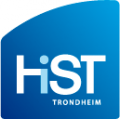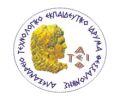Mid Sweden University offers courses and undergraduate programmes in the following fields: the Humanities, the Social Sciences, Technology and the Natural Sciences, Teacher Training and the Health and Caring Sciences.
Mid Sweden University has an important role to play in the development of the region. The university has close links with industry and commerce, local authorities, governmental authorities and other bodies in the region. This co-operation is important to the development of Mid Sweden University and its ability to contribute to the development of the region.
Among the central research areas you will find: Entrepreneurship and Business development, Learning, Education and Cultural heritage.
Education in close collaboration with working life. Mid Sweden University aims to provide education with a close connection to working life. This is made possible with the help from guest lecturers, student mentors from different companies, placements and degree projects. Developing an even deeper connection to trade and industry is a top priority for Mid Sweden University in the coming years and it is all done to ensure that the students get a relevant education that will help them to reach their goals and realise their dreams.
Mid Sweden University has an innovation office, Miun Innovation, working with the following main areas:
- Encourage students to create business ideas that derive from academic knowledge, and support them in the innovation process from idea to business concept
- Encourage researchers to use results that derive from research, and support the innovation process from idea to utilization
- Establish Miun Innovation as an important part of the regional innovation system
In addition to the areas above, Miun Innovation has recently also initiated a project named Miun Innovation – “För entreprenörskap i utbildningen” partly financed by Tillväxtverket. This project aims to develop entrepreneurship within the programs and courses at the university. It is a pilot project with programs dominated by female students as primer target groups. Prior to this project the university developed a business development course in cooperation with Venture Cup and with a number of guest lecturers from the region catering both students and professionals.
Miun Innovation has also developed a Swedish adaption of the method Easy Access IP aiming to connect the industry closer to the university. As a result, Mid Sweden University is the first university in Sweden to be renounced as an Easy Access university. The method offers a more efficient way to utilize research results deriving from the university and through the portfolio of free, Easy Access intellectual property (IP), Mid Sweden University provide a fast-track route for the transfer of knowledge and expertise from universities to industry, so that it can be developed for the benefit of the economy and society.
This application fits well within Miun top priority: deeper connection with industry. The institution for Information Technology and Media is responsible for research in Concurrent Design (CCD) and is leader in a three year project in that area. The Innovation office will be responsible for adding knowledge in the area of entrepreneurship and business planning.
For Miun the project is an important part of work to strengthen the connection between university and work life.
Role in the Project
The department for Information Technology and Media at Miun will act as the leader of this project (WP9-Project management), in collaboration with partner TISIP with whom there is a long-standing and close cooperation. Miun is also experts in the CCD process where it have development projects and ongoing research activities, in cooperation with HiST. In addition, Miun have participated in research projects within e-learning.
In addition to project management, Miun will take a large part in the development and use of the CCD process method for entrepreneurial training (WP1-Adapt the CCD method and transfer knowledge among participants, WP2-CCD process for designing the Entrepreneur training) and the development of the course instances and course materials from the developed CCD template (WP3-Course preparation).
The Innovation office contributes with their knowledge in entrepreneurship and innovation, connection to Miun research and their connection with the industry.
Partner Details








